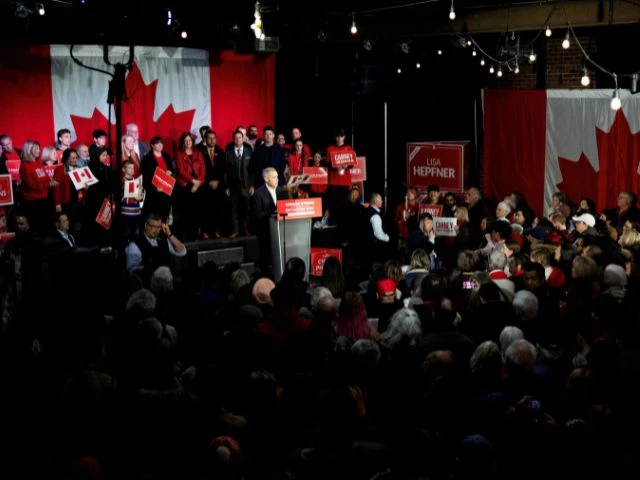More than one in four Canadians has been exposed to fake political content on social media in the lead-up to the April 28 federal election, according to new research that warns of a sharp rise in online disinformation and fraud.
A report released Friday by the Media Ecosystem Observatory (MEO) describes a “dramatic acceleration” in misleading content, ranging from deepfake videos to scam investment ads masquerading as news articles.
Researchers say much of the material is more sophisticated, more polarising, and harder for voters to detect than in previous elections.
The study found a growing number of Facebook ads impersonating trusted news brands to promote fraudulent cryptocurrency schemes.
Many of these ads use fake headlines and doctored videos to trick users into clicking links leading to scam websites.
“This is not simply low-effort misinformation – it’s highly produced, visually convincing, and engineered to look like legitimate political coverage,” said Aengus Bridgman, executive director of the MEO. “We’re seeing platforms flooded with content that targets both the political system and the public’s trust in media.”
The current election marks Canada’s first national vote since Meta, Facebook’s parent company, blocked Canadian news content across its platforms in response to the Online News Act (Bill C-18), which requires tech giants to compensate publishers for news content shared online.
Despite the ban, more than half of Canadians still report receiving political information via Facebook, according to the research.
“Users often don’t realise they’re not consuming verified news,” Bridgman said. “They might follow political memes, cultural commentary pages, or candidate posts and leave feeling informed – but that’s not the same as receiving fact-checked reporting.”
The report argues that the absence of credible news has created an opening for lower-quality, polarising, and fraudulent content to take hold.
Among the most concerning trends, the report identified a series of deepfake videos falsely depicting Prime Minister Mark Carney endorsing a cryptocurrency investment programme. The clips, styled to mimic CBC or CTV news segments, contain fabricated interviews and false claims about new government policies.
One widely circulated fake headline read: “Mark Carney announces controversial retaliatory tariff plan in response to Trump’s devastating tariff hikes this week”. The link led users to a scam site asking for personal financial information.
Another Facebook page, named Money Mindset, purchased five French-language ads featuring a deepfake of Carney between 4 and 9 April. The ads ran for just a few hours but reportedly received up to 10,000 impressions, costing around C$1,000.
“These imposter ads and fake videos undermine the credibility of both the political leaders and the news organisations being mimicked,” the report stated.
Canada’s federal task force on Security and Intelligence Threats to Elections (Site) confirmed that foreign interference remains a concern, particularly from China, Russia, and Iran. Last week, Site revealed an operation linked to China on the Chinese-language platform WeChat, though it concluded the activity did not have material influence.
Instead, the report highlights that most of the disinformation originates from domestic sources focused on financial scams rather than electoral manipulation.
“These scams aren’t necessarily designed to change votes,” Bridgman said. “But they do erode public trust and further confuse the information environment at a critical time.”
While Meta says such ads violate its policies and encourages users to report scams, researchers argue enforcement remains inconsistent. Many ads evade detection by not identifying themselves as political, which keeps them out of Meta’s public ad library.
“This is the kind of content that would never pass broadcasting standards on TV,” said Bridgman. “And yet Facebook serves these fake Carney ads to thousands of users across the country in the middle of a federal election. It feels dystopian.”
Meta said it continues to invest in technology and enforcement tools to stop scams and impersonations, calling it an “ongoing industry-wide challenge”.
But researchers say more stringent oversight is needed, especially in the absence of reliable news content on major platforms.
“We’ve effectively handed the information space over to unregulated actors,” Bridgman said. “And it’s the public who pays the price.”







